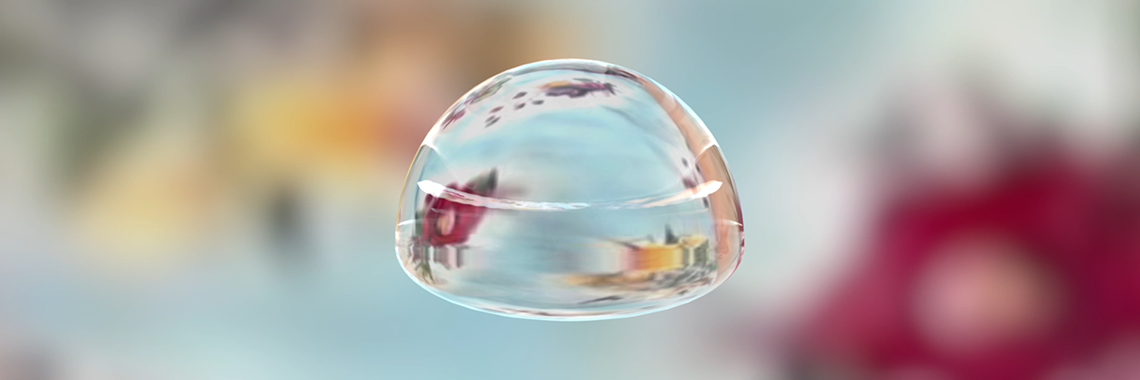
Project Mediakunst op Wikipedia
Het project Mediakunst op Wikipedia plaatst de werken en levensverhalen van mediakunstenaars in de schijnwerpers. Als initiatiefnemer van dit project zijn we ervan overtuigd dat iedereen met interesse of nieuwsgierigheid voor deze kunstvorm, of kunst in het algemeen, kan aansluiten bij het project én kan bijdragen aan meer zichtbaarheid voor mediakunst. Samen met onze projectpartners Wikimedia Nederland, Stedelijk Museum Amsterdam, Van Abbemuseum, Frans Hals Museum en de Rijksdienst voor het Cultureel Erfgoed (RCE) werken we aan het bereiken van dit doel. Dit project biedt ook de unieke kans om metadata op een gecontroleerde manier als linked open data toegankelijk te maken - waardoor informatie over mediakunst makkelijker gevonden en gedeeld kan worden.
Het doel
In belangrijke landelijke kunstcollecties is een aanzienlijke hoeveelheid waardevolle mediakunst te vinden. We kunnen deze als verborgen parels omschrijven, aangezien ze nog niet bekend zijn bij het grote publiek. Door samen te werken met Wikimedia Nederland, de organisatie achter 's werelds populairste en grootste online encyclopedie, willen we dit veranderen.
Bij de start van het project in 2021 stonden er van de 900 mediakunstenaars in Nederlandse collecties 500 niet op Wikipedia. Dit getal is ons kwantitatieve doel geworden. In de loop van het project streven we naar de publicatie van 500 Wikipedia-artikelen over mediakunstenaars die vertegenwoordigd zijn in de collecties van het Stedelijk Museum Amsterdam, de RCE, het Van Abbemuseum, het Frans Hals Museum en LIMA.
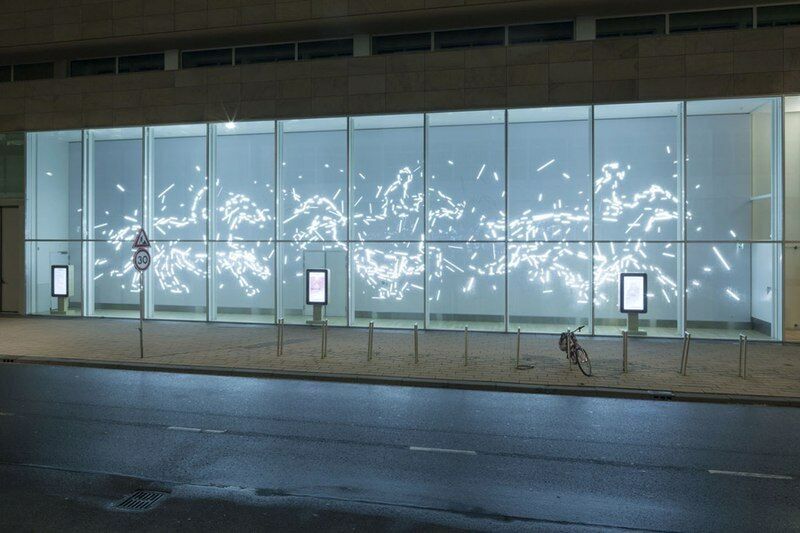
Schrijfsessies
Om ons doel te bereiken, organiseren we samen met universitaire partners en andere samenwerkingspartners regelmatig schrijfworkshops. Elke workshop wordt begeleid door een kundige Wikipediaan die de deelnemers de fijne kneepjes van het schrijven voor Wikipedia laat zien. Er zijn twee soorten workshops: sessies die samen met universiteiten georganiseerd worden en de gratis openbare sessies, waarbij iedereen welkom is, of je nu ervaring hebben met Wikipedia of niet.
Het Van Abbemuseum organiseert tijdens de gehele looptijd van het project schrijfworkshops in samenwerking met studenten van de Universiteit Utrecht en de Open Universiteit. Zij hebben deze opdracht zelfs in hun curriculum opgenomen! Het Stedelijk Museum Amsterdam werkt samen met de Vrije Universiteit Amsterdam en neemt kunstenaars en werken uit hun collectie Time-based Media als uitgangspunt. De RCE werkt samen met studenten van de Universiteit Leiden en organiseert regelmatig schrijfworkshops voor haar eigen medewerkers.
De publieke workshop organiseert LIMA samen met haar partners door heel Nederland. Deze sessies variëren van samenwerkingen met galeries, zoals Upstream Gallery (Amsterdam), culturele centra en bibliotheken zoals Rozet (Arnhem) en organisaties zoals Atria en IHLIA, die maandelijks een WikiVrijdag organiseren om deelnemers te laten schrijven over vrouwen en/of LGBTQI-onderwerpen op Wikipedia te kunnen publiceren. Ook organiseren we bij RCE in Amersfoort gedurende de hele looptijd van het project regelmatig openbare sessies.
Alle aankomende schrijfsessies vind je in onze agenda - hier vind je all info en kun je je aanmelden.
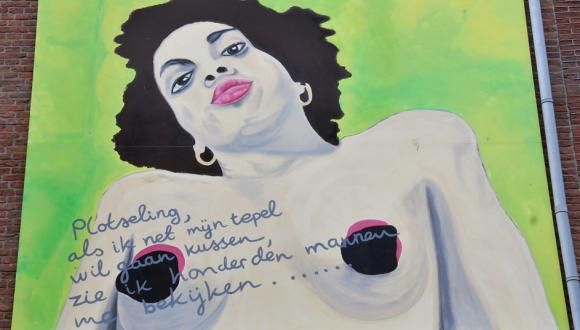
Mediakunst Blog & Agenda
Naast de 500 Wikipedia-artikelen, werken we momenteel aan een website met verhalen over mediakunst. Deze Mediakunst Blog wordt begin 2023 gelanceerd. We nodigen gastcuratoren en journalisten uit om kunstenaars te interviewen en artikelen te schrijven. Ook delen we hier podcasts en een kalender met evenementen om naar uit te kijken! Met de inspirerende inhouden prikkelen we de bezoekers van de Blog om zich in de verhalen achter de mediakunstenaars en hun werken te verdiepen en nieuwe kunstenaars te ontdekken.
Onze Mediakunst Blog is gekoppeld aan Mediakunst.net, de online mediakunstcatalogus voor professionals. Hierin staat de volledige mediakunstcollecties van de projectpartners. Deze koppeling maakt het mogelijk om mediakunst on demand te bekijken - en dit draagt ook weer bij aan het doel van het project om mediakunst zichtbaarder te maken voor een groter publiek.
Metadata als linked open data
Voor een stevige representatie van mediakunst op Wikipedia is het invoeren van gegevens in Wikidata van groot belang. Wikidata is de referentiedatabase onder Wikipedia. Om de data op een duurzame en correcte manier in te voeren, werken we voor dit project samen met Wikipediaan en data expert Hanno Lans. Door dit zo aan te pakken hebben we de unieke kans om metadata gecontroleerd en online toegankelijk te maken als linked open data, wat ook weer bijdraagt aan het vergroten van de zichtbaarheid van de collecties.
Bij dit traject zijn diverse nationale en internationale kennispartners betrokken, waaronder NDE (Netwerk Digitaal Erfgoed), DEN (Kennisinstituut cultuur en digitale transformatie) , ZKM (Zentrum für Kunst und Medien, Karlsruhe, Duitsland), Meemoo (voorheen PACKED, België) en het IFFR.
In de loop van dit proces ontdekten wij dat er nog geen datamodel in Wikidata bestaat dat specifiek op mediakunst is toegesneden. Het ontbreekt aan een gemeenschappelijke en gestandaardiseerde manier om mediakunst in databases in te voeren. Daarom ontwikkelen we dit datamodel momenteel in samenwerking met experts uit het veld. We zijn verheugd dat ook ZKM als partner bij dit proces aan boord is!
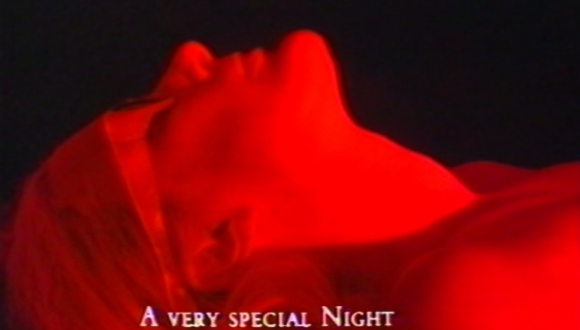
[ENG]
In a nutshell
The project Media art on Wikipedia aspires to shed brighter light on media artists, their works and their lives to make them more visible and accessible! As initiator of this project, we are convinced that literally anyone with a genuine interest or curiosity for this artform or art in general can join the project and contribute to more exposure for media art. Together with our project partners Wikimedia Nederland, Stedelijk Museum Amsterdam, Van Abbemuseum, Frans Hals Museum and the Cultural Heritage Agency of the Netherlands (Rijksdienst voor het Cultureel Erfgoed, RCE), we work towards achieving this goal. In addition, this project also provides the opportunity to make metadata accessible in a controlled way as linked open data - which means that media art content can be found and shared more easily.
The aim
There is a substantial amount of valuable media art in important national collections that we could describe as hidden gems, as they are not yet known by the larger public. The project partners want to bring a positive change to this status quo and teamed up with Wikimedia Netherlands to get these artists and their works on Wikipedia, the world's most popular online encyclopaedia, used across generations.
At the start of the project in 2021, from the 900 artists in collection here in The Netherlands, 500 were not listed in Wikipedia. The project partners took this figure and set it as a common quantitative goal: in the course of the project they strive to achieve the publication of 500 Wikipedia articles on media artists represented in the collections of the Stedelijk Museum Amsterdam, the RCE, the Van Abbemuseum, the Frans Hals Museum and LIMA.
Writing sessions
To achieve this quantitative goal, the project partners, together with LIMA, university partners and other supporting organisations, host regular writing sessions. Each session is accompanied by a savvy Wikimedian who shows the participants the ins and outs of writing for Wikipedia. There are two kinds of writing sessions - ones which are carried out in cooperation with universities and free public writing sessions where everyone is welcome, whether they have previous experience with Wikipedia or not.
The Van Abbemuseum organises sessions throughout the duration of the project in collaboration with Master’s students from Utrecht University and the Open University, which have included the assignment in their curriculums. The Stedelijk Museum Amsterdam works with the Vrije Universiteit Amsterdam, taking artists and works from their Time-based Media collection as a starting point. The RCE works with students from Leiden University and regularly organises writing workshops for her own employees.
The public writing sessions organised between LIMA and the partners take place across The Netherlands. These sessions vary from cooperations with art galleries, such as Upstream Gallery in Amsterdam, art centres including Rozet in Arnhem and organisations like Atria and IHLIA hosting a Wikifriday session to enable participants to describe more women-related and/or LGBTQI topics on Wikipedia. Together with RCE we organise regular public sessions throughout the duration of the project.
Find all the upcoming writing sessions in our agenda - it provides information and subscription details.
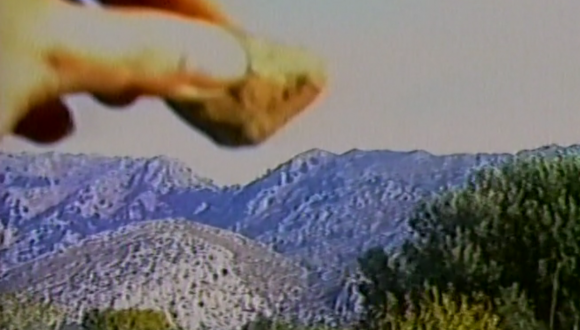
Media Art Blog & Calendar
In addition to the writing sessions, we created an editorial space to share the stories behind the media artists and their works. This Media Art Blog will be launched in the beginning of 2023. With the help of guest curators and journalists to interview and feature artists, we will be sharing relevant articles, podcasts and an exciting event calendar with upcoming dates to look forward to!
Our Media Art Blog is linked to the professional media art catalogue Mediakunst.net, holding the complete media art collections of the project partners. This connection allows to watch media art content on demand and feeds the goal of the project to give more visibility to media artists and their works.
The opportunity to collect open data
To guarantee a solid representation of media artists and their work on Wikipedia, entering data into Wikidata is of great importance. Wikidata is the reference database under Wikipedia. To be able to enter the data in a sustainable and correct way, we work with Hanno Lans, who is specialised in data throughout the project. By doing so, we seize the unique opportunity to make controlled metadata accessible online as linked open data, which contributes to increasing the visibility of the collections.
Various national and international knowledge partners are involved in this process, including NDE (Dutch Network Digital Heritage), DEN (Dutch knowledge institute culture & digital transformation), ZKM (Zentrum für Kunst und Medien, Karlsruhe, Germany), Meemoo (formerly PACKED, Belgium) and IFFR.
In the course of this process we noticed that a new, media art specific data model is not yet existent in Wikidata as this art form is relatively ‘young’ and there is no common standardised way of referencing media art. In partnership with ZKM we are currently developing a new data model to insert meta data of media artworks into Wikidata.

